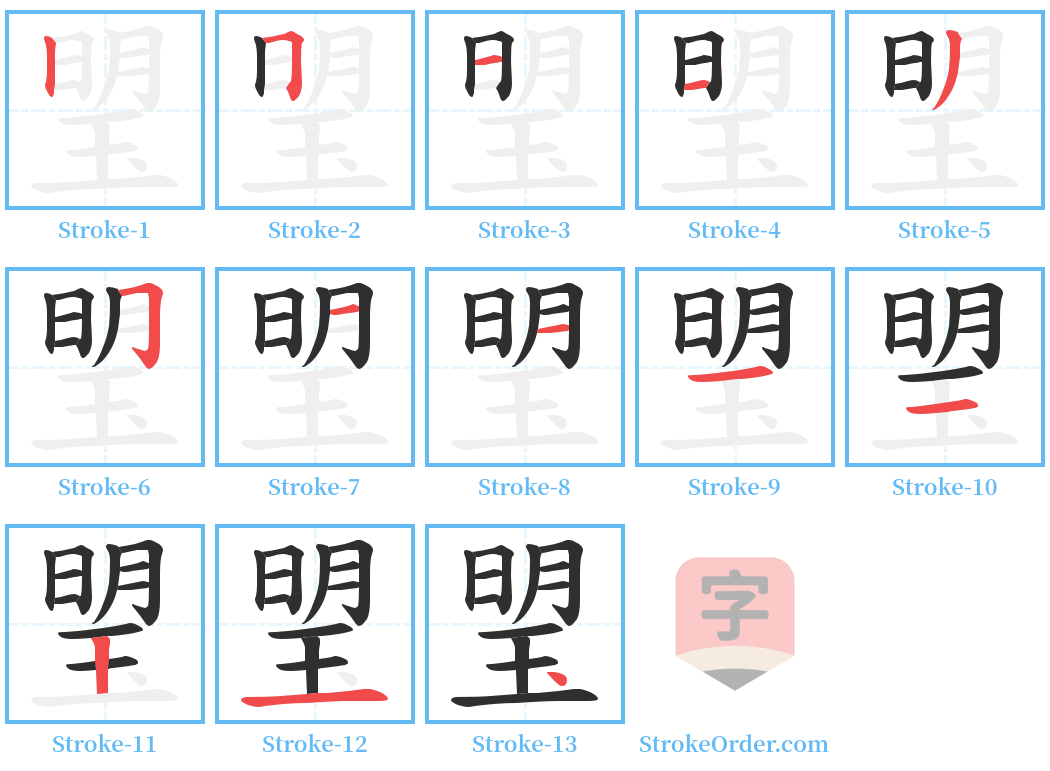琞 Stroke Order
Animated Stroke Order of 琞

Stroke Order Diagrams for 琞

Information of 琞
Pinyin
shèng
Radical
玉
Strokes
13 strokes
Usage
★★
Definition
琞:
1. Anciently the same as "圣" (saint, holy).
2. Understanding of reason. As noted in the "Book of Songs," "Mother is wise and benevolent."
3. Intelligent; having talent surpassing others. Han Yu states, "Hence the wise become wiser and the foolish become more foolish."
4. Cunning; implies cleverness, quick-wittedness, or sharpness. In the Yuan Dynasty, Guan Hanqing wrote, "Hurry with the jade whip, urge the fine steed swiftly, I wish the holy could arrive at my beloved's door."
5. Mastery of a particular skill or knowledge; someone with outstanding achievement in a certain study or craft. Xunzi noted, "Accumulating good deeds leads to virtue, and one's divine nature becomes complete."
6. An ancient ruler of the world; also used as a term of utmost respect for emperors or empresses.
7. According to the "Lu’s Spring and Autumn," "Thus, there are seventy-one saints in the world, each with different laws."
8. Refers to legendary immortals. In the Qing Dynasty, Li Yu wrote, "Little Saint Pinglang Hou, that’s Mr. Yan, who governs the water kingdom, maintaining ceremonies for the primordial yin."
9. A term for clear wine; often used to refer to alcohol in general. Clear wine was thus called "saint," abbreviated as "圣." Li Bai in "To Meng Haoran" wrote, "Drunk under the moon, frequently amidst the saints, asleep among the flowers, indifferent to the king."
10. Name of a river, referring to what is now Liu Li River in Fangshan District, Beijing. Li Daoyuan in "Water Classic" stated, "The holy water flows from Shanggu, going east past Liangxiang County to the south."